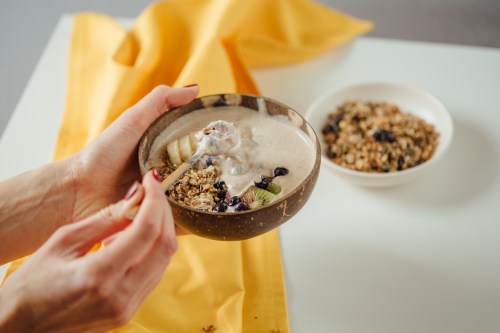Our editors independently select these products. Making a purchase through our links may earn Well+Good a commission
Why an Anal Surgeon Is Begging You To Stop Using Wet Wipes
Discover why an anal surgeon doesn't recommend using wet wipes for toilet paper, and how they wreak havoc on your butt and environment.

Wet wipes are the San Pellegrino of butt-cleansing tools: They feel like a fancier, grown-up version of toilet paper. Besides the posh factor, people who swear by them for their post-bowel-movement wipe believe the method is more thorough and leaves the buttocks cleaner than it would otherwise be. While I hear you considering the argument at hand, don’t rush to the store just yet. According to an anal surgeon, it’s time to officially ditch those personal hygiene wipes for toilet paper.
Experts in This Article
anal surgeon and founder of Bespoke Surgical and Future Method
board-certified urologist and founder of Prestige Medical Group in Santa Ana, California
“People think if they can use a wet wipe on their baby, they can use it on themselves,” says Evan Goldstein, DO, anal surgeon and founder of Future Method. But while wet wipes make you think you’re getting your bum cleaner, they can actually cause myriad complications that you likely don’t want to deal with in the long run. Apart from being a major environmental concern—which is a big deal—wet wipes aren’t the best option for the health of your anal region.
First, what are wet wipes made of?
According to the Food and Drug Administration (FDA), wipes can be made of materials like polyester, polypropylene, cotton, wood, pulp, or rayon fibers formed into sheets. Most are moistened with water and other cleansing and moisturizing agents like glycerin or hyaluronic acid1. Some may even have certain ingredients to help prevent mold and bacteria growth.
While most wet wipes (like baby wipes, for example) contain water as the main ingredient, antibacterial wipes will often have alcohol and other chemicals that kill bacteria, such as quaternary ammonium compounds, or "quats" for short. The FDA says products may also be labeled scented, unscented, or fragrance-free, depending on whether certain perfumes or essential oils are added.
The benefits of wet wipes? Most obviously, the convenience factor and a cleaner feel. But there are some downsides to using them (more on this below).
Wet wipes can mess with your skin microbiome
You may be wondering: “Are wet wipes bad for you?” Well, kinda. Just like the skin on your face, your anus and its surrounding skin is covered in good and bad bacteria, which work together to find homeostasis and keep your tush in tip-top condition. “This is important, so when you start to augment that [microbiome2] with wet wipes, what happens is that you’re wiping away the good bacteria and the balance becomes a problem,” says Dr. Goldstein.
When there’s an imbalance, you can wind up with irritation, rashes, or fungal or bacterial infections. “With the homeostasis in the biome altered, bad bacteria starts to populate fungus or irritation, which I see all of the time,” he says, noting that a standout sign of this is redness and overall discomfort. And, BTW: Even the best wet wipes that are “chemical-free” will do this.
Another big risk with using wet wipes is the moisture factor. “People tend to use wet wipes and then pull up their pants, so what happens is that the moisture sits there,” says Dr. Goldstein. “The moisture just festers, and it causes a change in bacteria and leads to irritation.” If this continually happens, he notes that people can feel as though they have fissures (i.e., small tears in the anal lining) or hemorrhoids (i.e., swollen veins on the anus) when really it’s just a buildup of irritation and bad bacteria. If you get something like this, make an appointment with your healthcare provider to see what’s going on.
Wet wipes are also bad for the environment
Another issue? Wet wipes can cause major problems for the health of your plumbing, too. “They often get clogged in the plumbing systems, and wind up in rivers and streams, which becomes a major issue,” says Dr. Goldstein. Flushable wipes and other waste (like grease) can accumulate in our sewer system, creating massive blockages called “fatbergs” that clog pipes and damage wastewater infrastructure.(While some wipes are advertised as “flushable” or “septic safe,” environmental groups argue that none of them truly are safe for our sewage systems.)
The problem has gotten so bad that in 2021, Congress introduced a bill that would create a standard for labeling non-flushable wipes. While some states have been slower to adopt this standard, others have acted on it by adding "do not flush" wording and images to certain product labels.
Wet wipes themselves also contain plastics that don’t degrade over time, which has serious consequences for the health of our planet. Case in point: A recent study found that wet wipes are a major contributor to marine microplastic pollution3 when improperly disposed (aka flushed)—which affects the safety of our water supply and health of ocean ecosystems. Another study found that plastic waste in sewage (like wet wipes) brings harmful, antibiotic-resistant bacteria4 like E. coli directly to beaches and ocean habitats.
What should I use to wipe my butt instead?
According to Dr. Goldstein, wet wipes should never, ever be used. Even moist towelettes are a no-go. Instead, your best options are toilet paper and bidets, and Dr. Goldstein is an advocate of the latter.
Why? Well, toilet paper, while designed to break down (and thus not be a major contributor to fatbergs), are still not great for the environment. A 2019 report from the National Resource Defense Council found that demand for toilet paper in the U.S. contributes to industrial logging that claims more than a million acres of Canadian forest every single year. On top of this, the World Wildlife Federation says deforestation in Indonesia has doubled in recent years, mostly due to by pulp, paper, and palm oil production. Less natural forest equals less carbon capture from trees and greater disruption to native species and ecosystems.
Meanwhile, bidets—a staple in many countries outside the U.S.—can be an effective way to reduce paper consumption and get your booty truly clean. “I very often recommend bidets for my patients with recurrent UTIs,” Lamia Gabal, MD, a urologist based in Irvine, California, previously told Well+Good. “I feel it helps to evacuate the stool completely, decrease the bacteria in the area and, in turn, decrease the risk for infection.” There are even portable bidets so you can keep your booty clean on the go.
However, bidets aren’t necessarily cheap, and do require installation—something that might not be possible for everyone (especially renters). And while some bidets offer dryers that can dry you in a few seconds, traditional bidets require you to sit and air dry your backside. This might not be a viable option when you’re on the run, like after pooping in the morning. In that case, toilet paper is fine, especially if you opt for some more eco-friendly toilet paper options.
But whatever you do, please, please ditch those wet wipes—even biodegradable wet wipes—for your butt’s sake as well as the planet’s.
The best way to wipe
If a bidet is not necessarily in your near future, there are some steps to wipe with toilet paper that can leave you feeling clean. Here are some tips from the experts:
- Fold or crumple a couple of tissue pieces.
- Reach behind you and between your legs (if you can’t reach, you can go between your legs from the front instead).
- Wipe from your perineum (the space between your genitals and anus) toward and past your anus. This will help ensure you get the most sanitary wipe5.
- Repeat the process until your toilet paper comes up clean.
- Do not excessively wipe. This can cause rectum redness, itching, and irritation.
The bottom line
While wet wipes for adults sound ideal, especially when you’re on the go (looking at you, travel wipes), they are not the best option to wipe after pooping. Even those advertised as “gentle cleansing wipes” can cause redness and irritation on your butt, and potentially wipe away good bacteria left behind on your anus. Learning how to clean your butt effectively may involve some trial and error with different types of products—like soft, eco-friendly toilet paper or bidets—until you find the right method for you.
If you're looking for the clean feeling of a wet wipe without the wipe itself, we recommend incorporating products like toilet paper foam next time you go number two. We like the brands Refresh Liquid Wipe: Toilet Paper Foam ($18) or Luna Daily The Everywhere Spray-To-Wipe ($18). Both are great wet wipe alternatives; just add a couple pumps of product to the paper and wipe as usual.
—reviewed by Jennifer Gilbert, MD, MPH
- Papakonstantinou, Eleni et al. “Hyaluronic acid: A key molecule in skin aging.” Dermato-endocrinology vol. 4,3 (2012): 253-8. doi:10.4161/derm.21923 ↩︎
- Papakonstantinou, Eleni et al. “Hyaluronic acid: A key molecule in skin aging.” Dermato-endocrinology vol. 4,3 (2012): 253-8. doi:10.4161/derm.21923 ↩︎
- Shruti, V C et al. “Wet wipes contribution to microfiber contamination under COVID-19 era: An important but overlooked problem.” Environmental challenges (Amsterdam, Netherlands) vol. 5 (2021): 100267. doi:10.1016/j.envc.2021.100267 ↩︎
- Metcalf, Rebecca, et al. “Sewage-associated plastic waste washed up on beaches can act as a reservoir for faecal bacteria, potential human pathogens, and genes for antimicrobial resistance.” Marine Pollution Bulletin, vol. 180, July 2022, p. 113766, https://doi.org/10.1016/j.marpolbul.2022.113766.
↩︎ - Akaishi, Tetsuya. “Post-Toilet Wiping Style Is Associated With the Risk of Urinary Tract Infection in Women.” Cureus vol. 16,4 e58107. 12 Apr. 2024, doi:10.7759/cureus.58107 ↩︎










